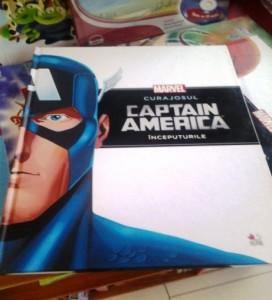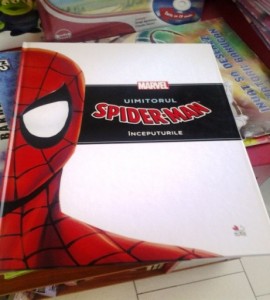 I wish to further elaborate on the linguistic tutelage of Moldavian society, i.e. foreign languages assuming the role of official/national language in Moldova. After 1991 Moldova passed from the linguistic tutelage of Russian to that of Romanian, the latter being the closest variety to the local dialect. The Moldavian dialect, as it never had a standardized form, clearly lacks the necessary elements to become the official language of administration: the legal, scientific and economic vocabulary.
I wish to further elaborate on the linguistic tutelage of Moldavian society, i.e. foreign languages assuming the role of official/national language in Moldova. After 1991 Moldova passed from the linguistic tutelage of Russian to that of Romanian, the latter being the closest variety to the local dialect. The Moldavian dialect, as it never had a standardized form, clearly lacks the necessary elements to become the official language of administration: the legal, scientific and economic vocabulary.
Max Weinreich’s definition, “A language is a dialect with an army and a navy”, does not apply to Moldova, as it is an independent state, with proper government, yet it fills its linguistic gaps from the standard of another country, Romania.
Earlier, under Russian dominance, people in Moldova lived in linguistic diglossia (using Fergusson’s concept): they had the local variety, i.e. the native language used in informal situations, while Russian persisted in all formal situations: mass media, administration, and – what concerns me – literature.

Among the rest of western literature, comics (and comics adaptations) were all mediated through the Russian language. The images to the right and below represent an early comic-adaptation, or in Julie Sanders’ terms, a proximation of the Bible (more precisely the Genesis) – by a French author, Jean Effel – entitled La création du monde. It is a primitive comic-strip, in that it narrates by the sequences of panels, but without speech bubbles, relying only on inscriptions which are often placed outside panels. Several pages of imagery are literarily wordless, making the reciprocal relation of text and image rather limited.  This ‘primitivism’ can be understood if one knows that the book was originally published in France in 1974 when comics, especially comics-adaptations of classics were better developed only in the US (see Classics Illustrated). The Russian translation, still available in libraries in Moldova dates from 1989 and demonstrates how foreign literature was mediated by Russian language and Cyrillic alphabet – the latter makes an odd match with the comics’ format.
This ‘primitivism’ can be understood if one knows that the book was originally published in France in 1974 when comics, especially comics-adaptations of classics were better developed only in the US (see Classics Illustrated). The Russian translation, still available in libraries in Moldova dates from 1989 and demonstrates how foreign literature was mediated by Russian language and Cyrillic alphabet – the latter makes an odd match with the comics’ format.
However, after its liberation, Moldova looked to Romania for linguistic tutelage, which is unusual since most newly independent countries without a standard try to fill their linguistic gaps artificially by employing linguists and other scholars, using mass media and public education, and – to some extent – literature. Although some loan-words in specific jargons are inevitable, the total mediation of Romanian language in Moldavian society is a marker of the state’s inability or refusal to create a proper national standard.
Nowadays, starting from about 2013-14, the American superhero comics (the Marvels) have finally hit the local market. As you see in the left, all major titles –  Batman, Superman, Spiderman, Justice League, Captain America, etc. – are found at leading book stores like Librarius (which collaborates with 200 publishers from Romania and Russia and only 130 from Moldova), but only in a variant translated and published in – and imported from – Romania. Regardless of power issues, this puts a burden on the prices of comics, making them – although trendy – hardly affordable by the greater part of the target audience. The cheaper volumes are sold for about 170 MDL (cca. 11 $), while there are many people with monthly salaries of 2000 MDL.
Batman, Superman, Spiderman, Justice League, Captain America, etc. – are found at leading book stores like Librarius (which collaborates with 200 publishers from Romania and Russia and only 130 from Moldova), but only in a variant translated and published in – and imported from – Romania. Regardless of power issues, this puts a burden on the prices of comics, making them – although trendy – hardly affordable by the greater part of the target audience. The cheaper volumes are sold for about 170 MDL (cca. 11 $), while there are many people with monthly salaries of 2000 MDL.
Sources of images: http://www.mythweb.com
Images taken by Nemes Zsolt

